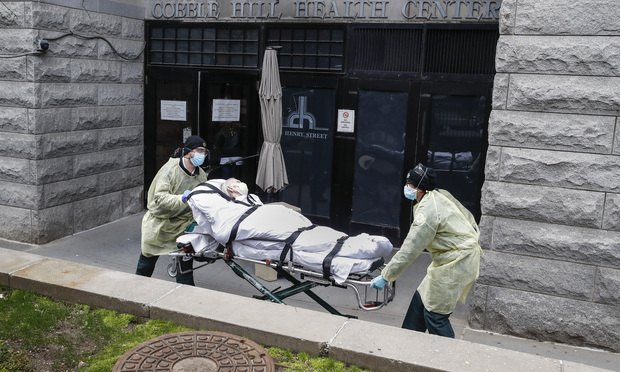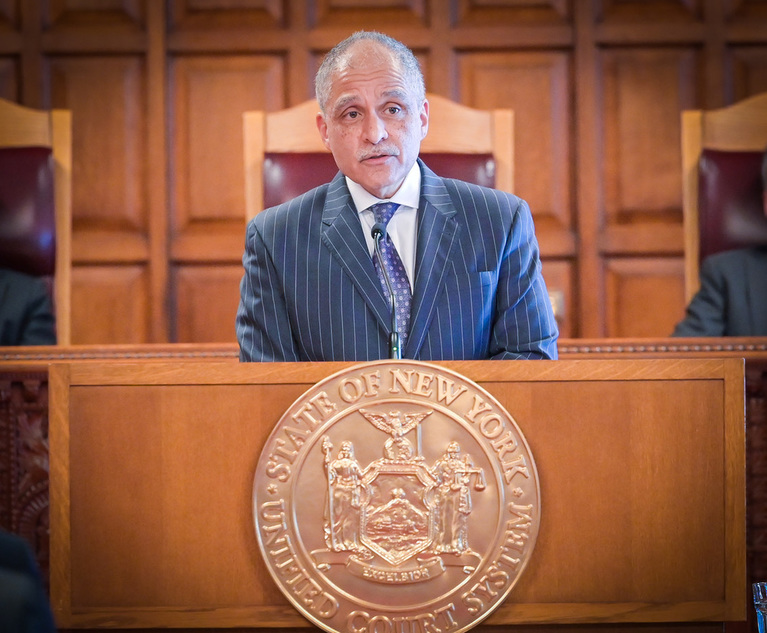New York Attorney General Letitia James issued a wide-ranging report Thursday presenting findings that the state health department appeared to undercount nursing home deaths due to the coronavirus, injecting fresh criticism into a blistering source of controversy for Gov. Andrew Cuomo’s administration.
The 76-page report found the state appeared to undercount coronavirus nursing home deaths by about 50%, based on preliminary data from dozens of facilities.
James, a Democrat serving her first term as state attorney general, also called for the elimination of a controversial immunity law that gave nursing homes and hospitals sweeping protections against civil and criminal liability.
The immunity law, a measure drafted by the powerful Greater New York Hospital Association, was quietly passed by state lawmakers last year through the state budget.
The law, according to the report, can create incentives for for-profit nursing homes to hold back on investing in staffing, personal protective equipment and effective training so staff can follow infection control protocols.
Immunity law opponents have said seeking justice through the courts is a fundamental principle. They argue the immunity law lets nursing homes and hospitals off the hook for any poor care.
Managers at one for-profit nursing home in western New York said the facility continued to take in new people, despite staffing difficulties and coronavirus cases among staff and residents, according to the attorney general’s report.
“While we cannot bring back the individuals we lost to this crisis, this report seeks to offer transparency that the public deserves and to spur increased action to protect our most vulnerable residents,” James said in a statement. “Nursing [home] residents and workers deserve to live and work in safe environments, and I will continue to work hard to safeguard this basic right during this precarious time.”
State officials have released data showing confirmed or presumed coronavirus deaths at nursing homes or adult care facilities across New York. But those figures do not include residents who died at hospitals.
State Health Commissioner Howard Zucker issued a lengthy statement Thursday afternoon in response to the report. He reported that 3,829 confirmed deaths “associated with Skilled Nursing Facility residents” took place within a hospital. He reported that those deaths took place between the start of March and mid-January.
Zucker also cautioned that an audit on the death figures reported by nursing homes is still ongoing.
Zucker, in the statement, argued the report showed “that the recurring problems in nursing homes and by facility operators resulted from a complete abdication by the Trump administration of its duty to manage this pandemic.”
New York’s response to the coronavirus in nursing homes has been a consistent source of criticism for the Cuomo administration, particularly as officials from both parties called for more transparency into the death toll tied to nursing home residents.
The report’s release spurred a new wave of criticism Thursday from both Democrats and Republicans.
The Republican leader in the state Senate, Rob Ortt, R-Niagara, called for Zucker’s resignation.
Assemblymember Richard Gottfried, D-Manhattan, called the attorney general’s report “shocking and unconscionable but not surprising.”
Assemblymember Ron Kim, D-Queens, an outspoken critic of the state’s handling of nursing homes, said the report shows that New York state “committed a human rights violation.” He said executives of for-profit nursing homes were “disincentivized” to act in a more responsible manner.
“The governor handed out blanket immunity to corporate executives which cost lives and brought undue pain and suffering,” Kim said in a statement. “It is a business model soaked in blood.”
The broad immunity passed last year included protections against criminal liability.
Attorney Stephen Warnke, an architect of the policy, told the Law Journal last year that the measure was crafted to protect against the possibility of negligent homicide charges.
The report disclosed that more than 20 nursing homes face ongoing investigation from the attorney general.Those are nursing homes “whose reported conduct during the first wave of the pandemic presented particular concern,” according to the report.
“Other law enforcement agencies also have ongoing investigations relating to nursing homes,” the report said.
While the target of the attorney general’s investigations are unknown, the immunity law passed by lawmakers will likely not make James’ work easier, said attorney Hermes Fernandez, the immediate past chairman of the state bar association’s health law section.
READ MORE:
This content has been archived. It is available through our partners, LexisNexis® and Bloomberg Law.
To view this content, please continue to their sites.
Not a Lexis Subscriber?
Subscribe Now
Not a Bloomberg Law Subscriber?
Subscribe Now
LexisNexis® and Bloomberg Law are third party online distributors of the broad collection of current and archived versions of ALM's legal news publications. LexisNexis® and Bloomberg Law customers are able to access and use ALM's content, including content from the National Law Journal, The American Lawyer, Legaltech News, The New York Law Journal, and Corporate Counsel, as well as other sources of legal information.
For questions call 1-877-256-2472 or contact us at [email protected]


 A patient is wheeled out of the Cobble Hill Health Center nursing home by emergency medical workers April 17, 2020, in Brooklyn, New York. Photo: John Minchillo/AP
A patient is wheeled out of the Cobble Hill Health Center nursing home by emergency medical workers April 17, 2020, in Brooklyn, New York. Photo: John Minchillo/AP





